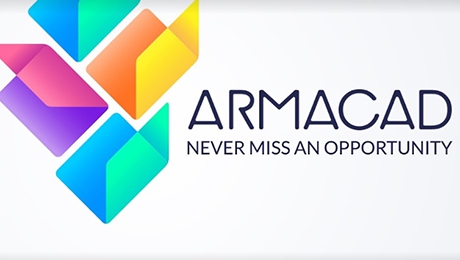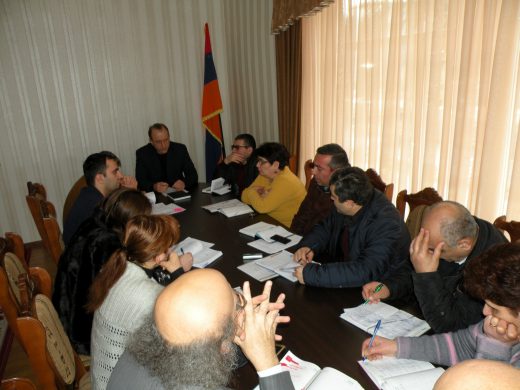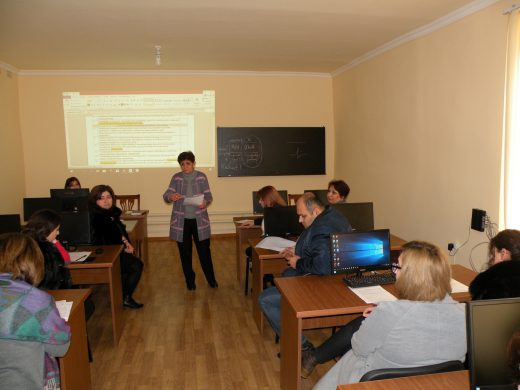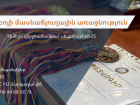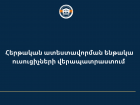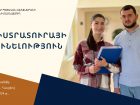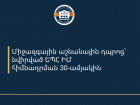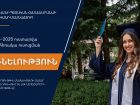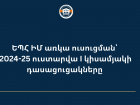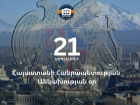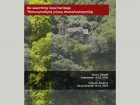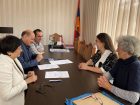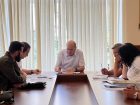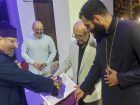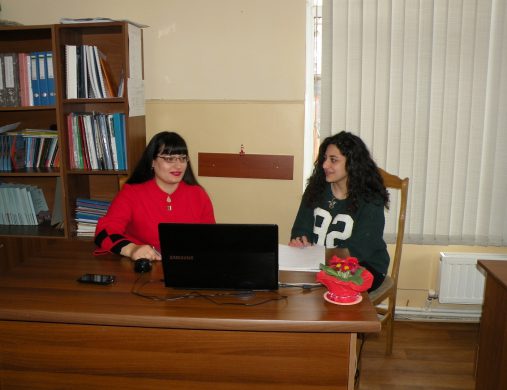
On February 15th, 2019, we had an interview with YSU Ijevan Branch graduate of 2008 academic year, Public Relations and Press responsible, Associate Professor of the Department of Armenian Language and Literature, Ph.D. Hasmik S.Vanyan.
– Please tell us your birth date and place.
– I was born on September 16, 1987, in a cozy Ijevan.
– Please tell us a little bit about your family (parents, husband, and children).
– My father, Samvel Vanyan, came from Shamshadin, from the borderline village of Chinari, he is a builder, my mother, Anahit Arakelyan, came from Ijevan, she is teacher, I have two brothers.
– What was your childhood dream?
– When I was young, I dreamed of “establishing justice in the world”, become a lawyer, but when I grew up, I realized that it was impossible and I chose literature, a sphere where impossible can become not only possible, but also real.
– What education did you receive?
– From 2004-2008, I studied at Ijevan branch of YSU, obtaining a bachelor’s degree in philology and pedagogy. From 2008-2010, I studied at YSU and received a Master’s Degree in Philology. From 2010-13, I was an Applicant at the Institute of Literature after M. Abeghyan of NAS RA. In 2013, I defended a thesis on “Poetry and prose legends of Avetik Isahakyan”, receiving academic degree of candidate of philological sciences.
– What role did the education received at YSUIB have in your life?
– It is not enough to say that the education received at YSUIB has played a crucial and significant role for my future career and in general. I would say that especially during my admission years, the existence of YSU Ijevan branch was a real salvation in Ijevan for me and other youth who did not have the opportunity to study in Yerevan but were eager to study …
I am so grateful to my beloved lecturers for their knowledge and spiritual values, and today I am proud to work with them with great responsibility.
– What work experience do you have?
-Since 2010, I work in the professorial and administrative staff of my native university, lecturer of YSU Ijevan branch of Armenian Language and Literature Department, since 2013 assistant, Since November 2012, I also work as YSUIB Public Relations and Press responsible.
– What is your favorite book?
– I find it difficult to name one specific book, so I’ll mention some of them. My favorite books include “The magic skin”, “The Count of Monte Cristo”, “Crime and Punishment”, “Old Man and the Sea”, “Alchemist”, ” Fahrenheit 451″, “Socrates”, “Conversation with Goethe”. Perhaps it is worth noting that I love my profession, Armenian literature, and I adore Avetik Isahakyan’s writings. I also have a hobby, philosophy. When I have a free time, I enjoy studying the works of Plato, Aristotle, Hegel, Storm, Schopenhauer, Nietzsche, Fromm and others.
– What is the last book you read?
– The book “Backward Horizons” written by my supervisor, Prof., PhD, Zaven Avetisyan.
– What music do you prefer and what is your favorite song?
– based on mood and occasion, I listen to different music, I have lots of favorite songs, but one of them is “Me without you” (perhaps because of the word “perhaps” in that song).
– What is your favorite movie?
– I love our Armenian classic films, among foreign films, I like “First Knight”, “Anna and the King”, “Shawshank Redemption”, “The Children of Heaven”.
– Do you have a favorite sport?
– Running, boxing and weightlifting. Perhaps you guess that I could do running, but the other two I like to watch.
– What is your favorite place in Armenia and abroad?
– My favorite place is a Paradise-like, a little crazy Ijevan, where it seems your breathe opens and as if every stone and shrub, every rock and stone breathe…
I have been abroad a few times and have visited Tbilisi several times which is a beautiful city, with a special charm of the ancient Havlabar district.
– What qualities do you value in people?
– I appreciate honesty, kindness, diligence, hard-work, dedication and purposefulness. I do not accept jealousy and people who do not specialized in their work.
– Do you have the quote or slogan you are guiding?
– I do not know whether it is a life slogan for me or not, but I like Margaret Thatcher’s statement: “Watch your thoughts for they become words. Watch your words for they become actions. Watch your actions for they become habits. Watch your habits for they become your character. And watch your character for it becomes your destiny. What we think, we become.
Indeed, what you think, you become, so we have to work to keep clean not only our body and clothing, but also our mind and soul …
– What will you never do?
“I will not act dishonestly, I will not leave the weak.
“What are you afraid of?”
“In general, I have a strong personality, but like every human being, I have the hidden fears as the hero of the film would say,” “Я не трус, но я боюсь!”… I am afraid of, for example, losing loved ones, not fulfilling my goals, relationships, misunderstanding.
-“Why are you sorry?”
– Perhaps I regret that I have not given up my feelings during my young years. Though, on the other hand, I do not regret that I am who I am now.
– What helps you make up your mind in difficult situations?
– My right assessment of what I want (“What do I want”) and capacity (“What can I do”), their balance and, of course, faith in God and my power.
– What do you think is the biggest achievement of your life?
– Certainly, I have achievements in life (loyal friends, worthy work …), but maybe my greatest achievement is still ahead…
– What is your formula for success?
– Know yourself, find your way and go straightforward, walk in that path. Not only evaluate the end point, but also the process that is your life.
– What is the most invaluable advice you have received?
– The most invaluable advice I received from my grandmother. One day my grandmother told me: “Oh my dear Has, Life is like an elevator ride…It has its ups and downs. It can take you to new heights or drop you to rock bottom”.
– What is the main message that you would give to young people (in particular, YSUIB students)?
– I would advise our youth to go straight to the destination. Do not compare with others, compare only with yourself to find out who you were what you are now and, of course, keep in mind that there is “sun” in every human being, so let it shine, and we are immortal until our work is done.
– Thank you for an interesting interview.
Interview was conducted by Erine Gharayan, Coordinator of the work with YSUIB Graduates and External Stakeholders.





